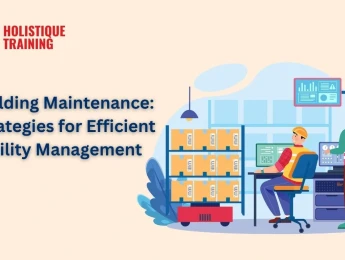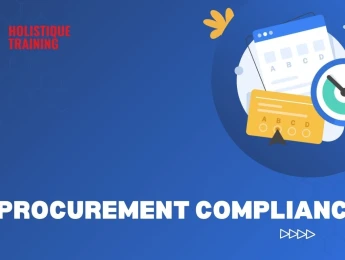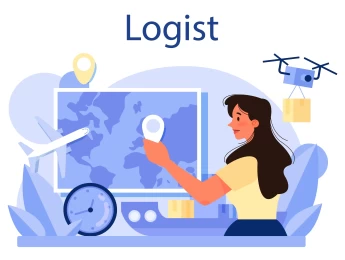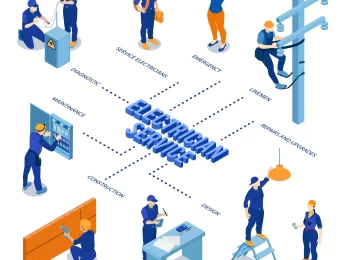Facilities management is crucial for many different organisations and industries. Any type of building, whether residential, commercial, or residential, will contain facilities that need to be seen to regularly to ensure full and safe working conditions. While some of these organisations may have established facilities management teams, many others will have to outsource professionals to conduct the service.
Organisations that use procurement to meet their facilities' demands will need to have an in-depth understanding of how service contracts work. These contracts should establish all details of the desired service, including specifications, terms and conditions, and tender. All involved parties should discuss and agree on these to guarantee the task can be completed swiftly and accurately.
These contracts must also be managed beyond their creation. Those responsible for establishing the contracts must closely monitor the task's progress to ensure it meets deadlines and that all costs remain within the organisation’s budget. They should also be equipped to communicate and settle disputes with parties tied to a contract.
Upon completion of this course, participants will be able to:
- Understand the importance of procurement and relationship building within facilities management.
- Describe the process of acquiring a facilities management contract.
- Assess the different aspects of a service contract and how to create one effectively.
- Evaluate various facilities to identify opportunities for service level improvements and areas for cost reduction.
- Comprehend the tender process and manage it accordingly.
- Ensure all working conditions are compliant with all relevant health and safety regulations.
- Regularly monitor service performance to ensure the contract is being worked accordingly.
- Communicate openly with contractors and solve disputes as they arise.
This course is designed for facilities management personnel responsible for procurement and contracts. It would be most beneficial for:
- Facilities Managers
- Contractors and Sub-contractors
- Procurement Managers
- Procurement Consultants
- Operations Managers
- Financial Advisors
- Legal Advisors
This course uses a variety of adult learning styles to aid full understanding and comprehension. Participants will review established contracts between organisations and contractors to highlight key details surrounding the tender process, service expectations and terms and conditions.
To ensure a full understanding of the subject, the participants will use various learning methods, including presentations, video materials, group discussions, and practical activities. This combination of methods will ensure the participants can comprehensively understand content knowledge and related skills.
Day 5 of each course is reserved for a Q&A session, which may occur off-site. For 10-day courses, this also applies to day 10
Section 1: Fundamentals of Facilities Management
- Define what facilities management is and its importance and necessity within an organisation.
- What roles are involved within facilities management and their skills, competencies, and common responsibilities.
- Identify what features would be included in facilities management – ventilation, heating, elevators, etc.
- Explaining why procurement is often required within facilities management.
Section 2: Understanding Service Contracts
- Describing what a service contract is within facilities management services.
- What specifications should be included within a contract – service provided, time taken, and resources required?
- The process of drafting service specifications and structuring pricing schedules.
- Setting the terms and conditions of the contract and overall service.
- Common mistakes when creating supplier contracts – knowing what’s ideal.
- Maintaining an easily understandable document through formatting and structure.
Section 3: The Tender Process
- What is the tender process in relation to service contracts?
- Setting and meeting deadlines and establishing responsibilities for all involved parties.
- Managing price to match the organisation’s budget – getting the ideal bids.
- Utilising various interviewing and negotiation techniques when discussing potential payments with contractors or suppliers.
Section 4: Contract Strategy
- Determining the contract strategy depends on ideal outcomes and expectations.
- Calculating and eliminating all unnecessary costs.
- Evaluating organisational goals and objectives to set achievable expectations for the service contract.
- Limitations of service contracts and how to navigate them to ensure the goal is still met.
- Exploring the different contract relationship styles and which may be more suitable.
Section 5: Contract Management
- Keeping the focus on strategic management and improvement.
- Driving innovation amongst contractors.
- Monitoring performance and making adjustments wherever necessary.
- Building a relationship with those under contract to promote a positive working environment.
- Engaging with tension and conflict calmly and resolving disputes amicably.
Upon successful completion of this training course, delegates will be awarded a Holistique Training Certificate of Completion. For those who attend and complete the online training course, a Holistique Training e-Certificate will be provided.
Holistique Training Certificates are accredited by the British Assessment Council (BAC) and The CPD Certification Service (CPD), and are certified under ISO 9001, ISO 21001, and ISO 29993 standards.
CPD credits for this course are granted by our Certificates and will be reflected on the Holistique Training Certificate of Completion. In accordance with the standards of The CPD Certification Service, one CPD credit is awarded per hour of course attendance. A maximum of 50 CPD credits can be claimed for any single course we currently offer.
- Course Code IND21-112
- Course Format Classroom, Online,
- Duration 5 days














